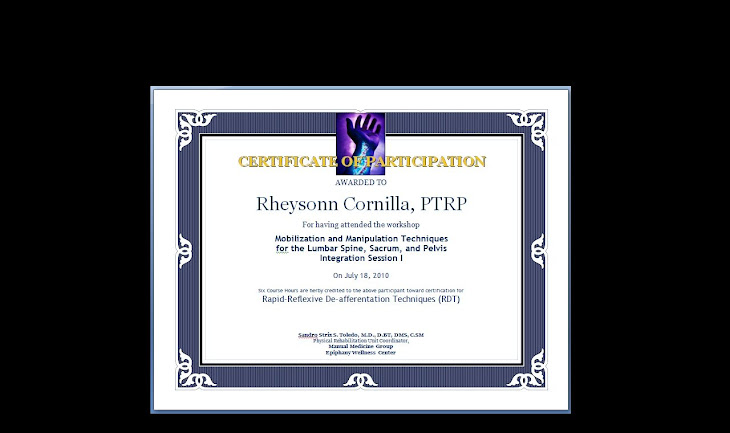Yes, i know. Unsolicited advice. I mean, who wants unsolicited advice?
I am, however, extremely glad that you found your way to this page. That can mean any one of several things, of course. I am, however, hoping that you're here because (like us), you are looking for answers. If not anything else, we've only been around slightly longer than you have in this field. We're hoping that that time and exposure difference can still enrich your experience. Of course, if you've been around for thirty years in manual medicine and have an unstoppable need to keep constantly updated, then, well, this part of this site ISN'T for you.
Wee bits of advice for manual medicine / manual therapy / bodywork specialist practice, then (especially in the Philippines):
Ask a lot of questions. Question what you're told. Question what you're shown. Question your results. Question yourself. Find commonalities. Find the exceptions. Sit down with and learn hands-on from the best of every field, wherever you can find these experts. Get off your bench and go out into the world and see patients. Stop worrying about your lack of experience. Start getting experience. Go to clinics. Volunteer. Apprentice. Step out of the box. Think again. Put yourself in your patient's shoes. Imagine what it's like, then imagine what it can be like. See as many teachers as possible before settling to spend the most time with just one teacher. If you have no point of comparison, it's so easy to blindly love and follow the school you've been to. Go to other schools. Use whatever is useful. If it isn't working, do it better or stop doing it. If it isn't working, it's the wrong tool -- use something else. Reflexes are there for a reason. What are they doing? Pay attention. Notice baseline and supposed functional levels. What can your patient not do? What do they need to be doing? Learn first. The earning will follow. Your patient is your bottomline. You take care of your patients, and they'll take care of you. Start with good intent, and it's extremely hard to go wrong. Go evidence-based. If it consistently works clinically, why not use it? Your patients are people. Follow your heart.
Okay, so they sound like truisms. They are, however, statements as true to our practice as we can write them out for sharing with you.
This entire page was written in a frenzied three minutes. My hands aren't as fast as my mind, nor as consistent as my heart. There was no censorship here. Just a sharing. Please, share with us and help us become better at what we do.
Towards an evolution in our field, and the synthesis of true healthcare,
Stay blessed.
Subscribe to:
Post Comments (Atom)














No comments:
Post a Comment